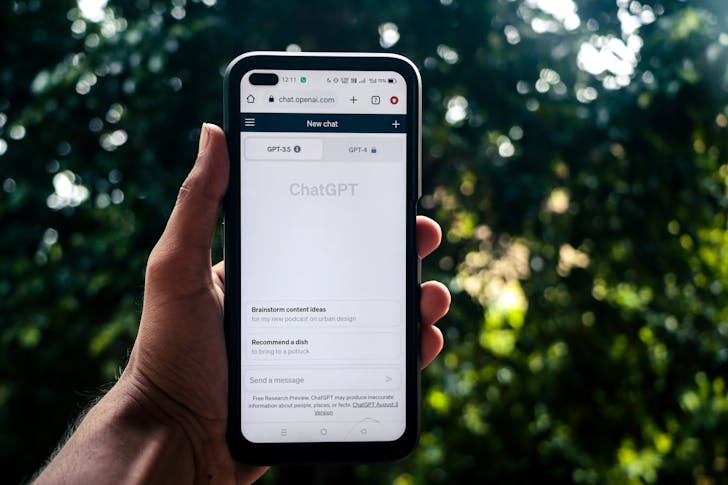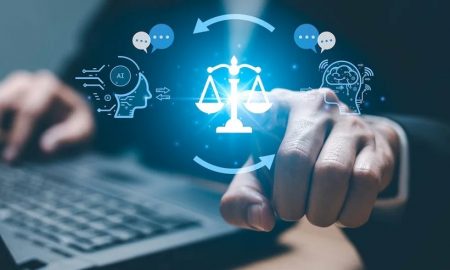
Is Legal Advice from ChatGPT Trustworthy?

Legal advice from ChatGPT may seem like a convenient and cost-effective solution for those facing legal challenges. AI tools like ChatGPT can provide quick answers, but accuracy and reliability are critical when it comes to legal matters. Unfortunately, the legal advice provided by these AI chatbots often leaves much to be desired.
5 Reasons Why You Shouldn’t Ask for Legal Advice from ChatGPT
Incorrect Legal Jurisdiction
One of the biggest issues with legal advice from ChatGPT is that it doesn’t always provide jurisdiction-specific answers. Legal systems vary greatly between regions, and laws in one country may not apply in another. ChatGPT might respond with laws from a completely different jurisdiction without indicating that its answers are not relevant to the user’s specific region.
This can cause confusion, especially for users unaware of these jurisdictional differences. For example, UK laws on renting or family matters differ between England, Wales, Scotland, and Northern Ireland. ChatGPT could easily mislead users by offering incorrect legal information without additional clarification.
Outdated Information
Legal advice needs to be current, as laws often change. However, AI models like ChatGPT are trained on data from various sources, and it’s difficult to determine how up-to-date that data is. This becomes problematic when ChatGPT provides information based on outdated laws. For instance, divorce laws in England and Wales changed in 2022, but ChatGPT may still offer advice based on old legal frameworks.
For anyone seeking legal guidance, outdated information can result in poor decisions. Relying on such advice can lead to complications, especially when new laws supersede previous regulations. Individuals may unknowingly make decisions that are no longer legally sound.
Free Versions Vs. Paid Versions
There is also a disparity in the quality of advice depending on whether users access the free or paid version of ChatGPT. ChatGPT-4, the paid version, tends to provide more accurate and detailed responses than its free counterpart. This difference in service quality creates an inequality for those unable to afford the paid version.
This pay-to-play model reinforces the existing digital and legal divides. Those who can’t afford professional legal services may turn to free AI tools only to receive subpar advice that doesn’t serve their needs. Legal guidance shouldn’t be a matter of affordability, but AI tools like ChatGPT risk exacerbating these inequalities.

Sanket Mishra | Pexels | ChatGPT-4 provides more accurate and detailed responses than its free counterpart GPT-3.5.
Misleading or Incorrect Legal Advice
Another significant problem is that ChatGPT often delivers incorrect or incomplete legal advice. AI models generate responses by predicting the next word based on patterns in their data, not by fully understanding the legal situation. As a result, they might offer misleading information or skip critical aspects of the law.
Without a strong legal background, it’s almost impossible for users to evaluate the accuracy of this advice. While the responses may be well-written and convincing, they don’t always reflect the complexity of real legal issues. This is especially concerning in areas like family or employment law, where the stakes are high.
Too Generic to Be Helpful
One of the main limitations of ChatGPT’s legal advice is that it often provides generic answers that lack the detail needed to resolve specific issues. Legal situations are highly individualized, and a generalized response rarely addresses all the factors in a given case. While ChatGPT may outline broad principles, it fails to offer the practical, actionable steps necessary to navigate legal disputes.
For example, if someone asks about their rights as a tenant, ChatGPT might list general laws regarding tenancy but fail to account for unique lease terms or local regulations that could affect the outcome. Without specific guidance tailored to individual circumstances, the advice becomes less useful.
More in Legal Advice
-
`
Investor David Einhorn Thinks Peloton Can Be Worth Five Times More IF It Cuts Costs
David Einhorn, founder and president of Greenlight Capital, has a bold vision for Peloton. He believes the struggling fitness company could...
November 7, 2024 -
`
How Interactive Matter Maps Improve Legal Research and Planning
Interactive matter maps have transformed legal research and planning by simplifying how law firms manage complex matters. These tools help legal...
November 1, 2024 -
`
The Role of Global Mobility in Business Planning for 2025
In an era where the competition for top talent is fierce, the significance of global mobility in business planning cannot be...
November 1, 2024 -
`
Will AI Legal Advice Empower or Exclude Those in Need of Justice?
The rapid advancement of technology has introduced AI legal advice into the legal profession, creating both excitement and concern. Law firms,...
October 25, 2024 -
`
Trump vs. Harris – Who Does Hollywood Support?
As the race for the White House heats up, celebrity endorsements have become an influential force in shaping public opinion during...
October 22, 2024 -
`
How to Understand Your Energy Bill and Prevent Common Billing Errors
Understanding your energy bill is essential for managing household expenses and catching potential errors. Your energy bill offers a breakdown of...
October 18, 2024 -
`
Is Shawn Mendes’ Relationship With Camila Cabello Finally Clarified?
Recently, Shawn Mendes shared insights into his connection with Camila Cabello during an interview with Jay Shetty. Their relationship, which has...
October 15, 2024 -
`
China Stimulus Fuels Market Surge, But Can It Save the Ailing Economy?
The recent China stimulus measures have sparked renewed optimism in the markets, but doubts remain about whether these efforts will be...
October 10, 2024 -
`
Top 12 Little-Known Savings Tips for Cutting Expenses Fast
Are you looking for the best ways to save money? Saving money often feels like a daunting task, but it doesn’t...
October 10, 2024
















You must be logged in to post a comment Login